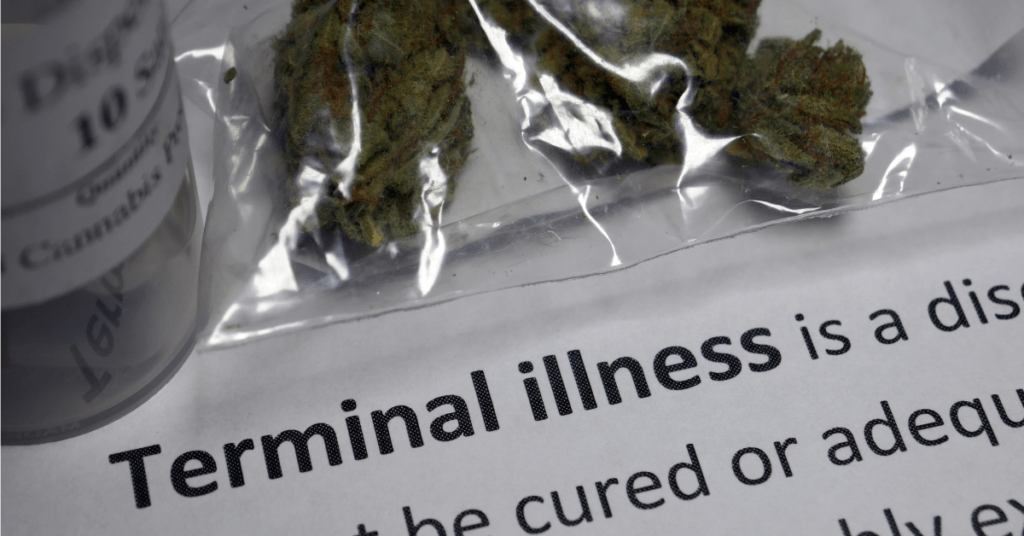A terminal illness is a condition that will eventually lead to death. This article goes over the different types of illnesses and what you can expect if you or someone close to you has one.
Contents
What Is Terminal Illness?
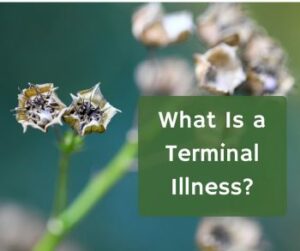 A terminal illness is an illness that cannot be cured and that will eventually lead to the person’s death. A person with a terminal illness may have only a few months or years left to live. This means that the person’s condition is not likely to improve.
A terminal illness is an illness that cannot be cured and that will eventually lead to the person’s death. A person with a terminal illness may have only a few months or years left to live. This means that the person’s condition is not likely to improve.
Terminal illness may be used interchangeably with dying, or deathbed. People who are diagnosed with a terminal illness have an estimated amount of time they will live based on statistics for people in similar conditions and other factors that impact life expectancy.
Types Of Terminal Illness
There are different types of terminal illnesses. Some of these are:
Cancer
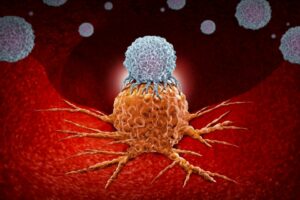 Cancer is the uncontrolled growth of abnormal cells in the body. This can invade and damage normal tissue. It can also spread (metastasize) to other parts of the body. This illness can be terminal if it is not treated or if cancer returns after treatment. It is one of the leading causes of death all across the globe. This can affect a number of different organs and body parts, including the liver, brain, bones, or lungs.
Cancer is the uncontrolled growth of abnormal cells in the body. This can invade and damage normal tissue. It can also spread (metastasize) to other parts of the body. This illness can be terminal if it is not treated or if cancer returns after treatment. It is one of the leading causes of death all across the globe. This can affect a number of different organs and body parts, including the liver, brain, bones, or lungs.
Stroke
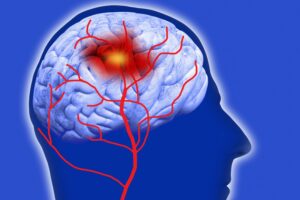 A stroke is an interruption in blood flow to a part of the brain which can cause death if not treated immediately. Depending on where it occurs in the brain stroke can either hinder muscle movement or create problems with speech. Strokes that occur close to an area called Broca’s region may limit how clearly someone speaks while strokes near Wernicke’s region will impact language comprehension abilities.
A stroke is an interruption in blood flow to a part of the brain which can cause death if not treated immediately. Depending on where it occurs in the brain stroke can either hinder muscle movement or create problems with speech. Strokes that occur close to an area called Broca’s region may limit how clearly someone speaks while strokes near Wernicke’s region will impact language comprehension abilities.
This illness has been known as being one of the most common causes of disability globally and there are treatments available for this condition but they do not work every time so some cases lead to death due to permanent damage from the stroke.
Heart Disease
 Heart disease is a condition that affects the heart. The most common type of heart disease is coronary artery disease, which is when plaque builds upon the walls of the arteries that supply blood to the heart. This can lead to chest pain (angina), a heart attack, or even death. Other types of heart diseases include arrhythmias, cardiomyopathy, and congestive heart failure
Heart disease is a condition that affects the heart. The most common type of heart disease is coronary artery disease, which is when plaque builds upon the walls of the arteries that supply blood to the heart. This can lead to chest pain (angina), a heart attack, or even death. Other types of heart diseases include arrhythmias, cardiomyopathy, and congestive heart failure
Lung Diseases
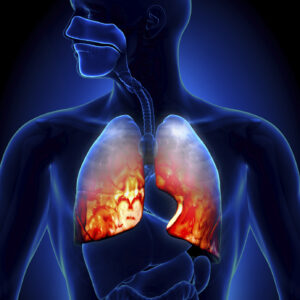 Lung diseases are illnesses that affect the lungs. The most common type of lung disease is a chronic obstructive pulmonary disease (COPD), which includes conditions such as emphysema and chronic bronchitis. Other types of lung diseases include acute respiratory distress syndrome (ARDS), pneumonia, and tuberculosis.
Lung diseases are illnesses that affect the lungs. The most common type of lung disease is a chronic obstructive pulmonary disease (COPD), which includes conditions such as emphysema and chronic bronchitis. Other types of lung diseases include acute respiratory distress syndrome (ARDS), pneumonia, and tuberculosis.
Liver Diseases
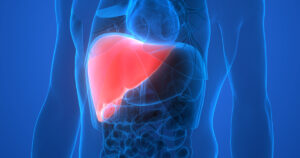 Liver diseases are illnesses that affect the liver. The most common type of liver disease is cirrhosis, which is a condition in which the liver becomes scarred and damaged. Other types of liver diseases include hepatitis, fatty liver disease, and Wilson’s disease
Liver diseases are illnesses that affect the liver. The most common type of liver disease is cirrhosis, which is a condition in which the liver becomes scarred and damaged. Other types of liver diseases include hepatitis, fatty liver disease, and Wilson’s disease
HIV/ AIDS
 HIV is a virus that attacks the body’s immune system and can lead to AIDS. HIV is most commonly spread through unprotected sex, sharing needles, or from mother to child during birth or breastfeeding. There is no cure for HIV/AIDS, but there are treatments available that can prolong a person’s life.
HIV is a virus that attacks the body’s immune system and can lead to AIDS. HIV is most commonly spread through unprotected sex, sharing needles, or from mother to child during birth or breastfeeding. There is no cure for HIV/AIDS, but there are treatments available that can prolong a person’s life.
Symptoms of Terminal Illness

These are some of the symptoms of a terminal illness:
Fatigue
People with a terminal illness often experience fatigue, which is a feeling of extreme tiredness that does not go away no matter how much rest someone gets. This can be caused by cancer itself or by treatment such as chemotherapy or radiation therapy.
Weight Loss
Many people with a terminal illness lose weight due to lack of appetite or nausea and vomiting related to their disease or treatments.
Confusion and Dementia
Alzheimer’s disease and other forms of brain disease can cause confusion and dementia, which is a loss of the ability to think clearly, remember things, and make decisions.
Nausea And Vomiting
Many people with a terminal illness experience nausea and vomiting due to their disease or treatments.
Insomnia
People with a terminal illness often have difficulty sleeping due to anxiety about their diagnosis or treatment side effects. This means that they may feel tired and exhausted during the day.
Depression
People with a terminal illness often experience depression, which is a feeling of sadness that lasts for weeks or months and interferes with daily activities.
Spiritual Struggles
People who are facing a terminal illness may struggle with spiritual questions such as “Why me?” or “What is the meaning of my life?”. They may also find it difficult to cope with the idea of death.
Irritability
People with a terminal illness may become irritable or angry more easily than before they were diagnosed. This can be caused by depression, anxiety, and stress-related to their diagnosis and treatment options.
Causes of Terminal Illness
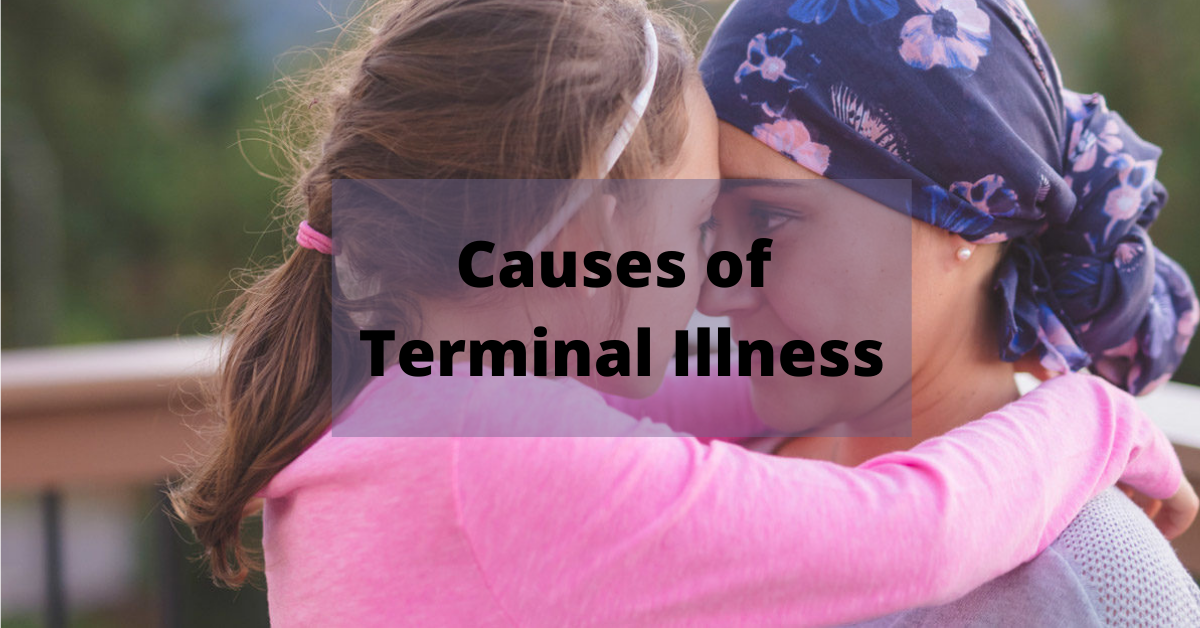
There can be many causes of a terminal illness. Some of these include:
Exposure To Toxins
People who work with or come into contact with certain toxins may have an increased risk for developing a terminal illness, such as lung cancer from exposure to asbestos at their job or mesothelioma caused by being exposed to asbestos in the air while working on construction projects.
Genetic Factors
Some people inherit genes that make them more likely to develop certain types of diseases, which can increase their chance of getting a terminal condition like Alzheimer’s disease if they live long enough. This means that the disease can run in families.
Smoking
People who smoke are at an increased risk for developing many types of terminal illnesses, such as lung cancer, emphysema, and chronic obstructive pulmonary disease (COPD).
Poor Nutrition
Eating a poor diet can increase your risk for developing a number of diseases, including heart disease, stroke, and type II diabetes – all of which can lead to a terminal illness.
Drug Abuse
Taking illegal drugs can increase your risk of developing a terminal illness, such as liver cancer from hepatitis C or lung cancer from smoking crack cocaine.
Age And Lifestyle Factors
If you are older than 65 years old, then your chance of getting a terminal condition is higher because many illnesses become more common with age. If someone has an unhealthy lifestyle (e.g., poor diet and lack of exercise) they may also be at increased risk for certain types of diseases that could lead to a terminal diagnosis.
Impacts of Terminal Illness
When someone is diagnosed with a terminal illness these are some of the impacts. Some of these things include:
Experiencing Changes In Body Weight
People with terminal illnesses often lose weight as their illness progresses due to decreased appetite or difficulty eating. Some people also experience fluid retention which can lead to swelling in the arms, legs, and abdomen.
Having Trouble Breathing
As the illness progresses many people develop shortness of breath as a result of fluid accumulation in the lungs (pulmonary edema) or an increase in carbon dioxide levels in the blood (hypercapnia).
Experiencing Pain
Many people with terminal illnesses experience pain as a result of the disease itself or from treatments such as chemotherapy or radiation therapy.
Making End-of-Life Decisions
As someone nears the end of their life they may have to make some tough decisions about how they want to spend their last days. This can include deciding whether or not to pursue aggressive treatment options, choosing where to die, and writing a will.
Having Emotional Changes
People with terminal illnesses often experience a range of emotions such as sadness, anger, fear, and anxiety. They may also feel isolated and alone due to their illness.
Diagnosis of Terminal Illness

The diagnosis of terminal illness can be overwhelming and many people experience a range of emotions such as anger, sadness, fear, or anxiety.
You can diagnose this condition by performing a physical exam, taking the patient’s medical history, and perhaps doing lab tests.
The doctor will likely evaluate capability for daily tasks including eating, grooming, hygiene routines, dressing self or others inappropriate clothing. This can include assessing whether or not they are able to take their own medications correctly.
Treatment of Terminal Illness

There are various treatment options for terminal illnesses. Treatment options can include medication, therapies, etc.
Medications
This treatment option can include opioid pain medication, anti-nausea medications, appetite stimulants, and anesthetics that can help manage the symptoms of a terminal illness.
Therapies
This includes psychotherapy or counseling to improve coping skills for those struggling with anxiety and depression as well as improving relationships among family members. This may also refer to physical therapy which aims at maintaining function by promoting mobility, minimizing pain, and preventing complications such as bedsores (pressure ulcers).
Palliative Care
Palliative care is a type of care that focuses on providing relief from symptoms and improving the quality of life for people who are dying. This type of care can be provided by a doctor, nurse, or other healthcare professional and can include medication, therapies, and emotional support.
Coping-Up With Terminal Illness
These are some ways that people coping up with a terminal illness. Some of these things include:
Finding Support
It can be helpful to talk to someone who understands what you’re going through if you have a terminal illness. There are many support groups available both in-person and online.
Expressing Feelings
It’s normal to feel a range of emotions when you’re diagnosed with a terminal illness. It can be helpful to express these feelings in writing, through artwork, or by talking to someone else about them.
Trying Out Relaxation or Meditation Techniques
Meditation and relaxation techniques can help you find peace, calmness, and focus during a stressful time.
Engaging In Physical Activity
Getting regular exercise is important to your physical health – but it also plays an important role in your mental health by reducing stress and anxiety. Working out may be difficult if you have a terminal illness – so try starting small with walking or yoga until you build up strength again.
Taking On New Projects
Many people who are approaching the end of their life wonder whether they should continue pursuing new projects that they’ve always wanted to do such as writing a book or learning how to play piano after being diagnosed with a terminal illness.
Conclusion
In conclusion, a terminal illness can be a very difficult time for both the individual and their loved ones. There are many things to consider when someone is diagnosed with a terminal illness, such as making plans for the future, dealing with emotions, and preparing for death. However, with open communication and support from family and friends, it is possible to get through this difficult time.
If you or someone you know is facing a terminal illness, please seek out help and support from your loved ones and professionals. There are many resources available to help you cope with this difficult situation. Remember that you are not alone in this journey.
For more information, please contact MantraCare. Relationships are an essential part of human life. It is the connection between people, and it helps us to form social bonds, understand and empathize with others. If you have any queries regarding Online Relationship Counseling experienced therapists at MantraCare can help: Book a trial therapy session
